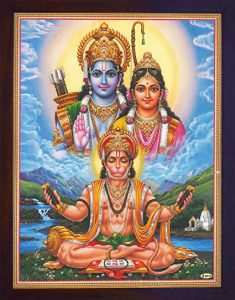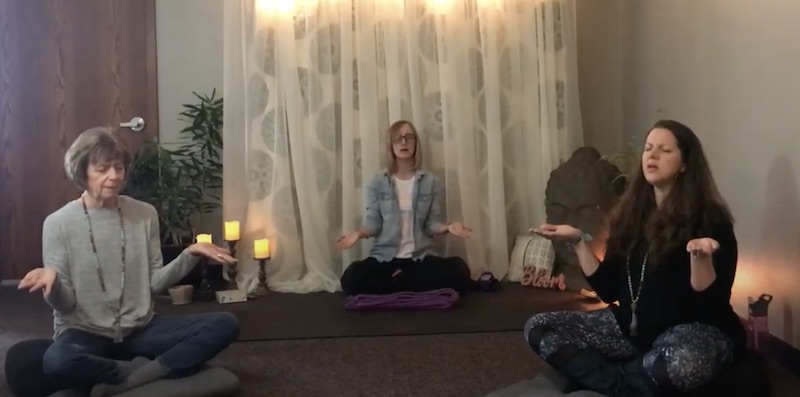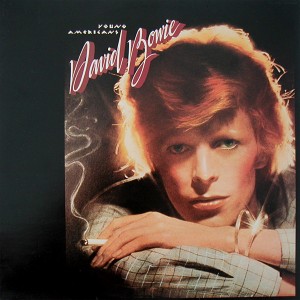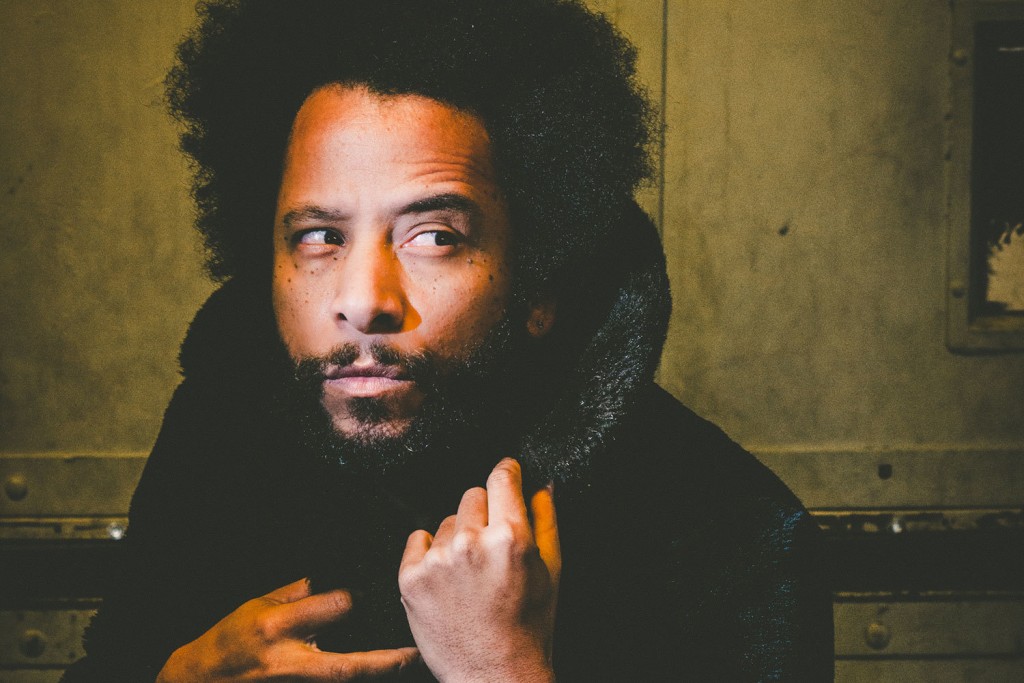Gail Ann Dorsey is one of the great American musicians of her generation. She recently began a Patreon. You should check it out.
Music
George
I just finished watching Scorsese’s film about George Harrison. It left me even more in awe than I had been.
Chanting the Names
 I began chanting the Sadaksara occasionally from the time I first obtained a Tibetan mala many years ago. Over the past year, as I took up the daily practice of meditation, I have alternated between it and the Adi Mantra (which we learned from Chand Shiva Singh, our Kundalini Teacher).
I began chanting the Sadaksara occasionally from the time I first obtained a Tibetan mala many years ago. Over the past year, as I took up the daily practice of meditation, I have alternated between it and the Adi Mantra (which we learned from Chand Shiva Singh, our Kundalini Teacher).
As my wife, Claudia, began her daily practice, she first used the Kirtan Kriya and then the Siri Gaitri Mantra.
Although all of these mantras have deep spiritual significance, none of them invoke (or make reference to) particular deities.
Over the past few weeks, though, I have been learning about the rich devotional tradition of bhakti. Much of that practice centers on repeating the names of various Hindu gods and goddesses.
Raised, as I was, in an Evangelical Protestant Christian home, I was taught that this sort of activity is akin to devil worship. Even the reverence of Christian Saints practiced by Roman Catholics was considered to be idolatry in our church. When I became Catholic, it took considerable study and soul searching for me to overcome this knee-jerk aversion stemmed in my upbringing.
The Catechism of the Catholic Church says that an idolater is someone who “transfers his indestructible notion of God to anything other than God.” Most Catholics, I suspect, would take this to be a prohibition against reverence to any god with a name coming from a tradition other than that of Judaism and Christianity.
Here is what I have come to believe. Our notions about God, and our faith traditions, are limited by our human capacities. Although we Catholics believe that scripture is inspired, we must also accept that the human beings who wrote the scriptures experienced the same limits of language and culture that we ourselves face. We are all trying to understand and describe something that is far beyond our ability to comprehend and convey. We can have an experience of the divine, but we can only approximate that experience when we try to conceptualize or describe it.
All of the world’s major religions have something to add to our understanding of why we are all here, and how we ought to pursue our lives. For me, Christianity in general, and Roman Catholic Christianity in particular, do better on the whole in the tasks of informing my conscience and nourishing my spirit – but I did not become Catholic because I believe that our teachings reveal the “one and only truth.” I do believe that there is truth to be found in the teachings of the Catholic Church, and in the way that we worship and work together. But this does not mean that we cannot also be nourished by the practices, and guided by the wisdom, of other religious traditions.
One of the great lights of kirtan in our age, Krishna Das, says that the practice of bhakti is singing to the loving presence that is always present within us and around us. “This loving presence may be called by all these names.”
In recent days, I have found great nourishment and comfort in singing the names of Rama, Sita, Hanuman, Krishna, Radha, Durga, Shiva – the list goes on and on. These names, for me, represent aspects of God, not beings who are distinct from God. I believe that learning their stories and chanting their names is another way of bringing more light into my life, and more love into my heart. I suppose that greater compassion will be the ultimate test of whether or not this is true.
All One.
Diving in to Bhakti

About seven weeks ago, my wife and a couple of her yoga friends did a Facebook livestream from the Align Light studio where they shared the Siri Gaitri mantra. It was a beautiful meditation.
Unfortunately, after the live session, Facebook removed the sound, because they had used recorded music and the platform’s AI recognized it as copyrighted.
The idea struck me immediately that we could remediate the problem by recording the music ourselves. So I grabbed my handy recorder and guitar, played some arpeggios, then decided to add some keyboard sweetening. After a few hours I had the basic track together. We refined it over the next few days, adding some reference vocals and such. Done. It wasn’t what I would consider to be “listening” quality, but it was fine for the background to chanting.
It hadn’t occurred to me that this would be anything other than a fun, one-off project. But then my wife said “we should record Long Time Sun too.” So I got out the recorder and guitar again, and this time decided to add a bass guitar track in addition to guitar and keys. I had learned some things from the process for the first recording, and was noticing things during this second one that could be improved as well. Before I knew it, I found myself saying “the next one of these we do, I’ll want to start with a click track.”
By now I was absolutely hooked, and began searching all over the Web for anything I could learn about Kirtan music and devotional chanting. At this point I was still thinking of the music as a pleasant and interesting hobby or diversion. Then, something odd happened.
Although I already had a vague notion that the chanting had a spiritual basis and spiritual benefits (we chanted at the end of Kundalini Yoga sessions and our instructor always spoke about the deeper meaning of the chants), I hadn’t realized that it is at the very center of some folks’ devotional life. The practice already had a pretty firm grip on me, and now it pulled me in. It suddenly felt as if every thing that I have experienced throughout my life, from the time I was a small child, was leading to this moment of discovery.
Claudia and I continue to chant together every evening, and now I’ve added an afternoon session to my daily practice as well. I’ve also begun to read the Tulsidas Ramayana, and to consider how singing the names of Hindu deities each day relates to my life as a faithful Roman Catholic Christian. I’ll be writing more about that in the days to come.
In the meantime, we’ve ordered a harmonium. 🙂
Ain’t there one damn song that can make me break down and cry?
 Young Americans came on the radio on the drive back from dropping my daughter off at school this morning. When this album was released in 1975, I was a DJ in my hometown’s first disco, The Hideaway. This song, along with Fame from the same album, were my favorites in the stacks that autumn. They had an authentic, organic sound grounded in Philly Soul, and thoughtful lyrics that went way beyond most of the rest of what we played, which I found to be repetitious and trite.*
Young Americans came on the radio on the drive back from dropping my daughter off at school this morning. When this album was released in 1975, I was a DJ in my hometown’s first disco, The Hideaway. This song, along with Fame from the same album, were my favorites in the stacks that autumn. They had an authentic, organic sound grounded in Philly Soul, and thoughtful lyrics that went way beyond most of the rest of what we played, which I found to be repetitious and trite.*
I’d heard lots of Bowie before, of course, and couldn’t resist the hooks in songs like Space Oddity or Suffragette City or Rebel Rebel, but his persona put me off and frightened me. I was under 18 and living in a conservative Evangelical Christian home. David Bowie and people like him were threatening and dangerous – worldly, seductive, transgressional. In the case of Bowie, that was obviously his intention.
The Young Americans album changed me. It began to change my view of the world. It wasn’t the only influence in this regard, but it helped to make me more questioning of conformity, more interested in things under the surface and more accepting of others. It prompted me to recognize and confront my own homophobia for the very first time. Allowing myself to enjoy the music pushed me to consider how silly it was to feel frightened by another human being merely because they weren’t quite the same as me. Aren’t we all different?
By the time Patti Smith’s Horses came out later that year, I was ready to listen .
* …if sometimes plenty of fun. Remember That’s The Way (Uh Huh, Uh Huh)?
Roger Waters Interview
Rolling Stone’s Andy Greene interviews Roger Waters, who weighs on in his current projects and surveys the worldwide political scene.
I think people are just beginning, as they sleepwalk their way through imperial capitalism, to realize the law is being eroded and the military are taking over commerce and the corporations are taking over government and that we the people no longer have a voice. To some extent, The Wall is asking the question, “Do you want a voice? And if you do, you better bloody well go out and get it because it’s not going to be handed to you on a plate.”
Source: Roger Waters on ‘The Wall,’ Socialism, His Next Concept LP | Rolling Stone
The Amazing Mister Boots
Joseph Bien-Kahn interviews Boots Riley.
When I say, “We have hella people, they have helicopters,” I’m trying to point out that they can have this technology, but we’re the ones that have to operate it. They’ve got our eyes on the details of technology, but the truth is, this whole world is run through the power of the working class. We’re who creates the profit and we can reorganize it. Helicopters won’t matter.
Read the full interview: Boots Riley on the State of Oakland, the Power of the Working Class, and His New Screenplay | VICE | United States.


